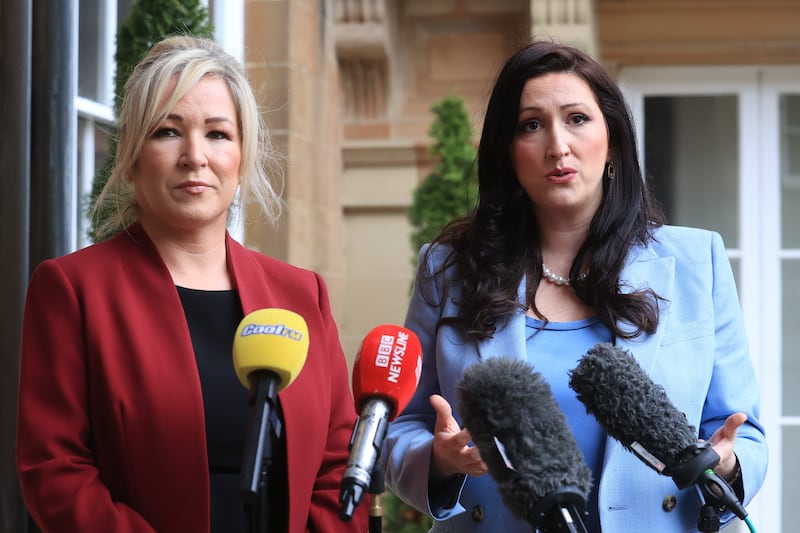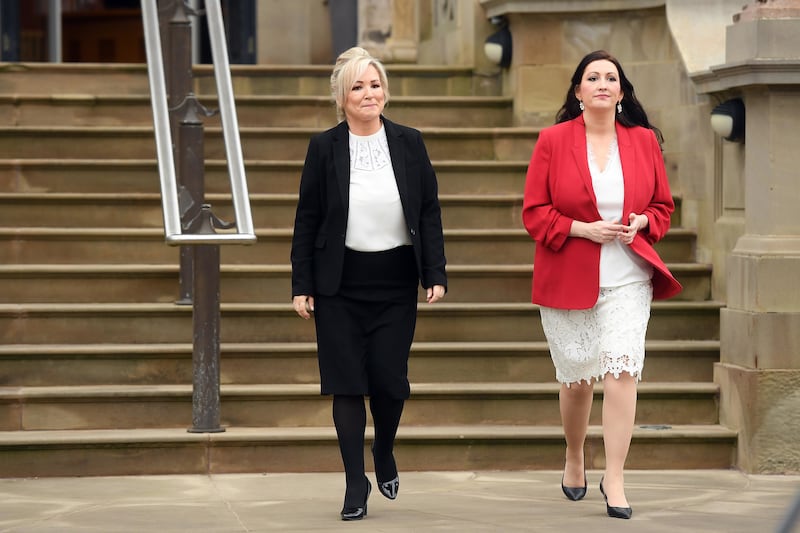HAVE you heard of the S-Plan?
It’s a new diet that is going to save us all after Brexit. A Scottish MP was speaking recently in the House of Commons and said interruptions to food supplies after Brexit could lead to empty shelves in our supermarkets. Luckily for the nation, our own intrepid MP Sammy Wilson had the answer, and was heard to exclaim: ‘Go to the chippy’.
Well, believe it or not, there is an important lesson here regarding our family finances.
For anyone who is thinking of the Sammy S-Plan, you should know that if you go to the chippy, the regular fish supper is filling you with trans fats, the most dangerous type. They are the ones that get the arteries around the heart good and hard. We also tend to douse our chips in salt, which raises our blood pressure due to the high level of sodium.
The point is, all of these things can lead to obesity, diabetes, heart disease, kidney disease, strokes and cancer. Thanks a million, Sammy!
Now, I’m sure the honourable member for East Antrim wasn’t wishing all these awful conditions upon us. In fact, he has probably done us a good turn, by giving us occasion to think: what if I’m heading towards some awful health setback? Could the S-Plan, or my present lifestyle, mean that someday soon I’ll have had my chips?
But you don’t have to be on a high-fat diet, to be struck down. It’s a lot more common than you might think. Research by the major insurers has shown us that a quarter of men and a fifth of women will have a major health setback that will break, or even end, their working life. Despite this, only 11 per cent of families have critical illness cover – the policy that bales you out, when you’re hit by an unexpected and major disease.
So the question is: should we be thinking about taking critical illness insurance, to protect our family, in the event that something knocks us sideways for a year, or two ... or three?
Critical illness – or ‘CI’ - policies pay out a tax-free lump sum when you are hit by one of the major diseases named in the policy – and after that, the policy ends. All CI policies cover the main conditions. Cancer, stroke and heart attacks account for 80 per cent of critical illness claims to major insurers, and when you add in MS, Alzheimer’s and motor neurone disease, that brings it to 90 per cent of all claims. Major surgery is usually covered too, and many policies cover much, much more.
We can’t protect ourselves completely against severe health problems, but taking out a good CI policy does mean you can bullet-proof your family against financial hardship, no matter what happens. Example: many people set their CI cover to pay off what’s left of their mortgage and other major debts.
Many of us have standard life insurance to give our family financial help when we die, but before the ‘when’ there is the ‘if’ – ‘what if’ we have to stop work for health reasons? I tell people that critical illness is the insurance you should have in case you don’t die.
I know Sammy will agree with me when I say: you may have to be bed-ridden for a while – but that’s no reason to take a serious illness lying down!
::Michael Kennedy and Shaun Doherty are independent financial advisers and pensions specialists, and can be contacted on 028 71886005. Further information is on the Facebook page 'Kennedy Independent Financial Advice Ltd' or the website www.mkennedyfinancial.com








